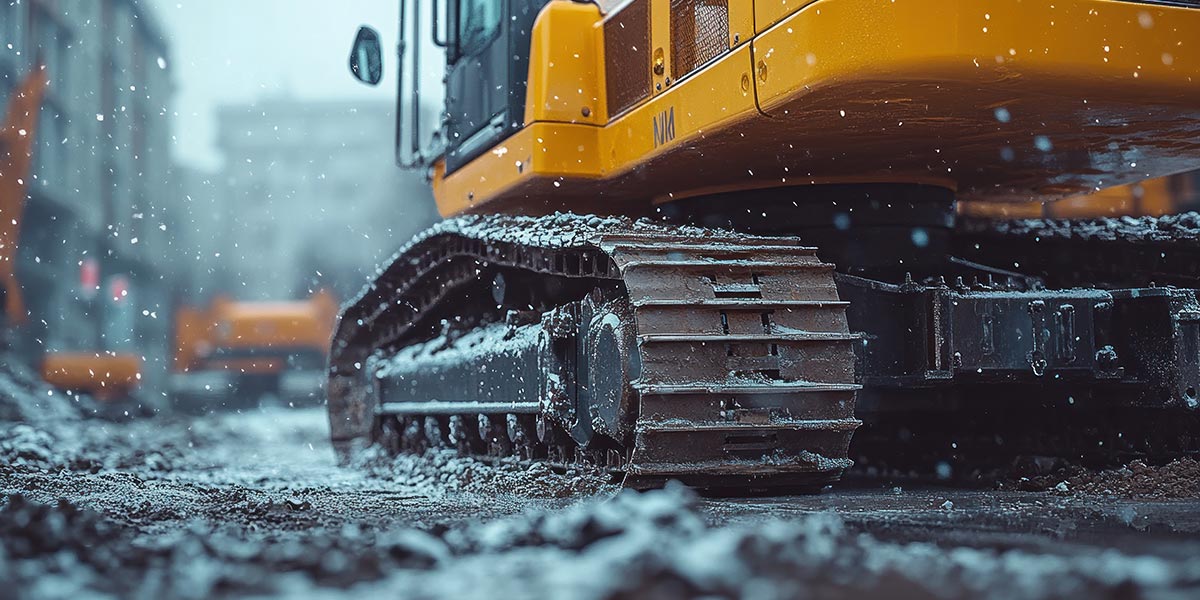Building in Unpredictable Conditions
In the construction world, you quickly learn that no two days are the same. One day the sun is shining and everything runs smoothly; the next, you’re dealing with heavy rain, late shipments, or an unexpected issue on site. It’s a business where plans are essential—but flexibility is just as critical. And if there’s one quality that separates long-term success from burnout or failure, it’s resilience.
Since starting Iron Oaks Custom Homes in 2018, I’ve had my fair share of storms—both literal and figurative. From weather delays and economic shifts to labor shortages and supply chain headaches, challenges are part of the job. But over time, I’ve learned that how you respond to those challenges is what defines you as a leader and a business owner.
The construction industry has taught me some tough, but valuable, lessons in resilience. Here’s what I’ve learned from weathering storms—on the job site and in life.
Expect the Unexpected
Early in my career, I used to think that if I just planned well enough, everything would go smoothly. But experience has a way of humbling you. Now, I plan thoroughly—but I also expect curveballs. Weather changes, inspections get delayed, clients change their minds, equipment breaks down. It’s not a matter of if problems arise, it’s when.
Being resilient means staying calm when the unexpected happens. It means having contingency plans, but also the presence of mind to make good decisions in the moment. I’ve learned not to panic, not to react emotionally, and not to take it personally when things go sideways. Instead, I step back, assess the situation, and focus on finding a solution.
In both business and life, expecting the unexpected doesn’t make you cynical—it makes you prepared.
Adapt and Move Forward
Construction projects require a lot of coordination. You’ve got subcontractors, materials, budgets, and timelines to juggle. When one piece of the puzzle shifts, you’ve got to adapt. Resilience, to me, means staying flexible without losing sight of the goal.
There have been times when we’ve had to pivot quickly—like sourcing alternative materials when supplies were delayed, or rearranging schedules to work around bad weather. These situations are frustrating, no doubt. But they also force you to think creatively and lean on your team.
Some of our best innovations have come from moments where we had no choice but to adapt. Over time, I’ve come to appreciate those moments—not because they’re fun, but because they make us better. They strengthen our problem-solving muscles and teach us to move forward even when the path isn’t perfect.
Lean on Your Team
In this industry, you can’t weather the storm alone. Construction is a team sport, and resilience often comes from the people around you.
I’m grateful to work with crews, subcontractors, and staff who show up every day ready to tackle whatever comes our way. We support each other, communicate openly, and keep morale up—even when things get tough. I’ve learned that building a resilient business means building a strong team—one that trusts each other and pulls together in hard times.
As a leader, part of my job is to foster that culture. I try to be honest about challenges, encourage problem-solving, and celebrate wins—especially when we’ve overcome adversity together. When people feel supported, they’re more likely to rise to the occasion.
Take Care of the Foundation—Yourself
One of the hardest lessons I’ve learned is that resilience isn’t just about the business—it’s about the builder. When times get tough, you have to take care of yourself if you want to lead others through the storm.
In the early days, I’d push through long hours, skip rest, and carry stress like a badge of honor. Eventually, I realized that’s not sustainable. You can’t pour from an empty cup. Now, I make a point to protect my health, spend time with family, and keep my faith at the center. Golf, skiing, and volunteering help me recharge and keep perspective.
Resilient leaders know when to push and when to pause. They know that strength isn’t just about toughness—it’s about endurance. And endurance comes from caring for the mind, body, and spirit.
Resilience Builds Reputation
When you handle adversity well, people notice. Clients, suppliers, and partners remember how you showed up when things didn’t go as planned. Did you communicate honestly? Did you stay professional? Did you follow through, even when it was hard?
In my experience, resilience builds reputation. It shows people that you’re reliable, committed, and solution-focused. That kind of reputation leads to trust—and trust leads to long-term relationships and opportunities.
Some of our most loyal clients came to us after seeing how we handled a difficult situation. That’s not luck. That’s the reward of staying resilient under pressure.
Final Thoughts: Storms Will Come—Be Ready
In construction, as in life, storms are inevitable. Some are brief and manageable; others hit hard and test everything you’ve built. But every storm is an opportunity—to grow, to lead, and to prove your foundation is strong.
I don’t welcome challenges, but I no longer fear them. I’ve seen what my team and I can handle. I’ve learned that resilience isn’t about avoiding problems—it’s about facing them with courage, creativity, and character.
Whether you’re in construction, business, or simply trying to lead your family well, my advice is this: build strong, expect challenges, and keep showing up. The storm will pass—but your resilience will last.
